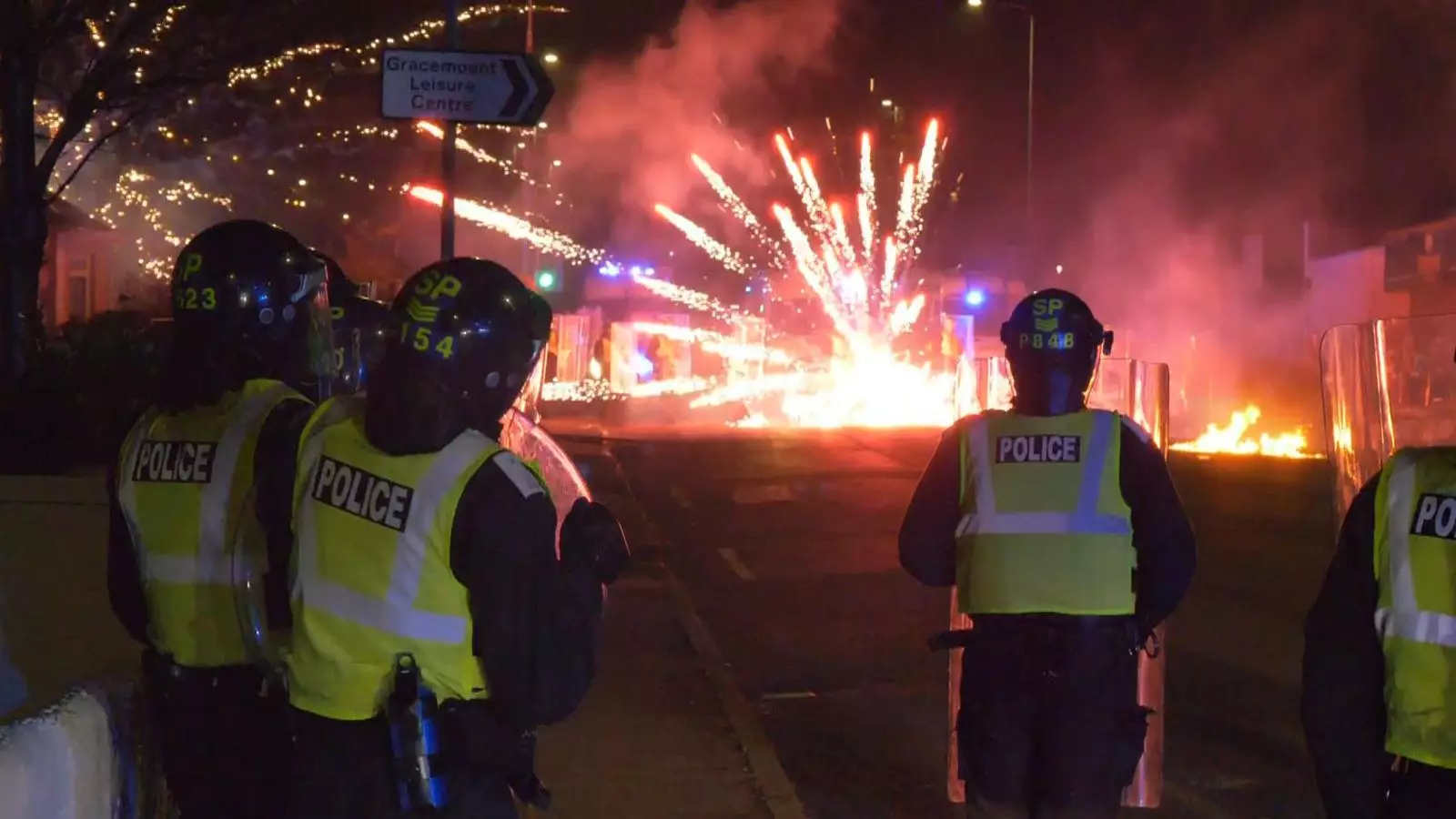In a shocking display of youth unrest, the streets of Edinburgh witnessed scenes of chaos as large groups of young people unleashed a barrage of fireworks, bricks, and bottles directed at police officers. This disturbance unfolded across several neighborhoods, including Sighthill, Niddrie, Gracemount, and Gilmerton, creating an atmosphere of fear and uncertainty on a night that is typically reserved for celebration. Videos circulated on social media illustrated the intensity of the situation, with riot police struggling to maintain order as fireworks detonated in close proximity.
The Response from Authorities
As the disturbances escalated, police were compelled to take drastic measures. Officers, equipped with helmets and shields, found themselves in precarious situations as they confronted the unruly crowds. Notably, one police officer sustained injuries when a brick was hurled through the window of her patrol car, signaling the severity of the violence. In response to the preemptive intelligence concerning potential disorder, authorities exercised enhanced stop and search powers in certain districts. This proactive approach underscores their determination to mitigate the risks associated with such unruliness, but it has simultaneously sparked discussions about community safety and youth behavior.
The situation prompted the deployment of a helicopter as part of “Operation Moonbeam,” aimed at aiding officials in combating firework-related offenses. This aerial surveillance underscores the gravity of the incidents, where traditional policing methods were not sufficient. Additionally, Lothian Buses temporarily halted all services in the Niddrie area, prioritizing passenger safety amid the escalating turmoil. Such responses by law enforcement reflect an urgent need to quell disturbances, yet they also raise questions about the long-term implications for community relations and public transport accessibility.
Broader Context of Firework-Related Incidents
The unrest in Edinburgh is not an isolated event; similar disturbances were reported just a few days earlier when Niddrie witnessed a furious barrage of fireworks and debris thrown at police. This recurring violence highlights a broader issue of youth engagement and the challenges faced by law enforcement in maintaining peace during festivities. The contrast with other areas, such as East Sussex, where the famed Lewes bonfire celebrations proceeded without incident, offers a jarring reminder of the divides that can exist even within a shared cultural context.
In light of the unrest, local authorities have implemented Fireworks Control Zones (FCZ) from November 1 to 10, wherein individuals convicted of discharging fireworks can face hefty fines or jail time. This measure represents an attempt to regain control over the chaotic environment that has emerged. Moreover, the seizure of a significant quantity of fireworks in Glasgow illustrates ongoing concerns regarding the availability of such dangerous items, particularly among marginalized youth demographics.
The recent events are a wake-up call for Edinburgh and similar cities grappling with youth-related issues during celebratory periods. Stakeholders—including law enforcement, educators, and community leaders—must collaborate to devise effective strategies that not only address disciplinary actions but also engage the youth constructively to prevent future conflicts.


Leave a Reply